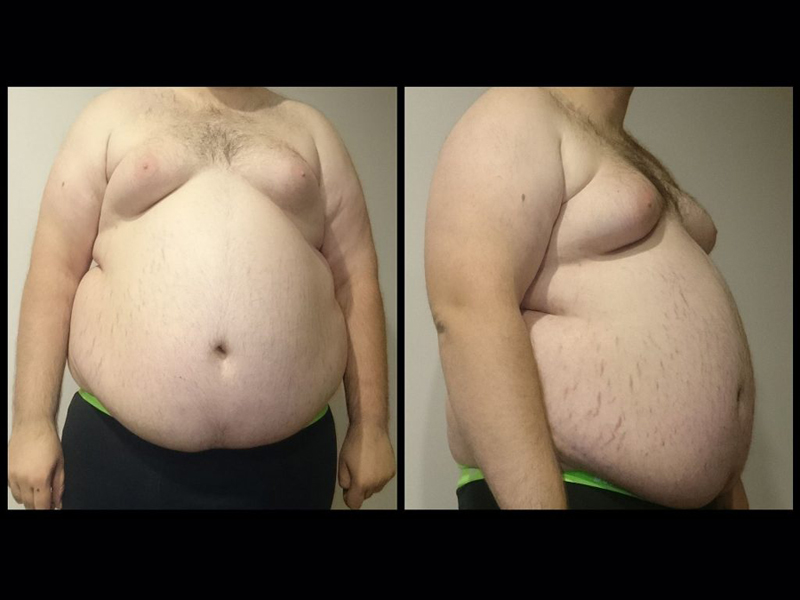Grieving After Tissue Loss

You might have thought that getting rid of a tumor, tissue from a breast reduction, tummy tuck, or getting rid of a condition that had been bothering you a while would just be good riddance. Don’t be surprised though if instead a grief reaction starts. If unacknowledged and managed inappropriately, your subconscious mind may prevent you from healing well and quickly.
I first became fully aware of this phenomenon when I treated a patient for uterine fibroids, which caused this patient extensive recurrent bleeding with fatigue, and limited her ability to go out in public places. As interventional radiologists, we enter from the groin artery into the blood vessels that supply the tumors and block them off. Subsequently the tumor starts to die down and with it the symptoms it caused in the first place. I told her that the procedure was successful, that her symptoms should improve over time and that the chance of not having lifestyle-limiting monthly bleeds was excellent. This all made her sad, and made me think.
I could intuitively understand that there might be some grief about losing a reliable ever-present, albeit unhelpful, companion. I knew from hypnosis literature that doctors’ statements such as, “You just have to live with it”, can prevent a patient from getting well from chronic symptoms even with the best treatment. After all “living” and “it” had been connected. The subconscious mind then concludes that life/death become dependent on maintenance/ loss of the symptoms, and in an act of self- prevent the patient from getting better (1). In these cases it becomes key for the patient to realize the connection and re-frame such unhelpful suggestions.
It is understandable that someone may grieve for a lost limb or some aspect of their outward appearance if a surgery makes things worse (2). Surprisingly, however, even losing tissue one really wants to get rid of can elicit sadness and grief. This has been shown in a study with plastic surgery patients (3). Among 8 consecutive patients who had a breast reduction– even though all liked the appearance afterwards – five developed emotional disturbances related to the surgery lasting from 3 weeks to 8 months. Their surgeons would never have noticed the distress on follow-up if not alerted to it by the psychologists conducting the study.
There is not much published in scientific literature on the phenomenon of grief over surgically excised tissue, but on the web it is easy to find testimonials from women who had tummy tucks and feel emotional postoperatively. The medical community often uses post-surgical (physical) effects as the explanation. It is important though to acknowledge that, if one loses part of oneself, some grief is quite appropriate. Since mostly unexpected, the feeling may be misinterpreted or even suppressed. Unless acknowledged, however, such grief can linger on and impair healing. A first step could be to accept that such a reaction is normal and even to anticipate it. One can go even further by reflecting and thanking the lost tissue for its positive contribution in the past and that the whole body is now able to go on with gratitude for the sacrifice and allow for healing.
References
- Ewin DM, Eimer BN. Ideomotor signals for rapid hypnoanalysis. Springfield, IL: Charles C. Thomas Publishers, 2006.
- Turkow LP. Psychic consequences of loss and replacement of body parts. Journal of the American Psychoanalytical Association 1974;22:170-181.
- Goin MK, Goin JM, Gianini MH. The psychic consequences of a reduction mammaplasty. Plast Reconstr Surg 1977;59:530-534.
- Suggestions/self reflections for letting go of surgically removed tissue: Chapter 5, page 40. Lang EV. Managing your medical experience. The information you need plus self-hyonosis for finding comfort with your tests and treatments. Middletown, DE: Create Space, 2014. —

10 Comments
I cannot thank you enough for the post.Thanks Again. Awesome.
I don’t even know how I ended up here, however I thought this post was good.
I don’t recognise who you’re but definitely you’re
going to a famous blogger in the event you are not already.
Cheers!
Hello There. I found your blog using msn. This is a very
well written article. I’ll make sure to bookmark it and come back to read
more of your useful info. Thanks for the post. I’ll certainly comeback.
Thank you!
Thanks for one’s marvelous posting! I truly enjoyed reading it, you happen to be a
great author.I will be sure to bookmark your blog and will often come back someday.
I want to encourage you to continue your great work,
have a nice holiday weekend!
Thank you.
Hello There. I found your weblog the usage of msn. This is an extremely neatly written article.
I will be sure to bookmark it and return to read extra of
your useful information. Thank you for the post.
I will certainly return.
My brother suggested I might like this website. He was once entirely
right. This publish actually made my day. You can not consider just how much time I had spent for this info!
Thanks!
Hi to every body, it’s my first pay a quick
visit of this website; this blog consists of remarkable and really fine material in support of readers.
Hello very cool site!! Man .. Excellent .. Superb ..
I’ll bookmark your blog and take the feeds additionally? I’m happy
to search out numerous helpful info right here within the submit, we want work out more strategies in this regard,
thanks for sharing. . . . . .
my blog post :: olej cbd na bole kregoslupa forum